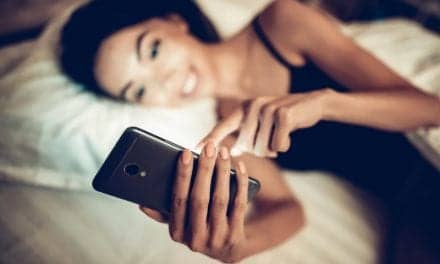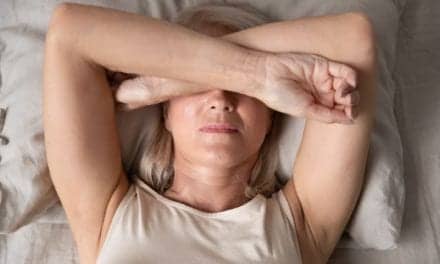Psychologists add perspective to 2020 and share tips for better sleep in 2021.
By Earl C. Crew, PhD, Kelly Baron, PhD, DBSM, Michael V. DeSanctis, PhD, LP, ABPP, DBSM, Christina McCrae, PhD, CBSM, and Skye O. Margolies, PhD, DBSM
Having used the past few months to ponder it in full, the conclusion about 2020 remains the same: the year was a bit of a nightmare for sleep.
Between the COVID-19 pandemic, racial violence, pervasive wildfires, a contentious election season, and an economic collapse, it’s hardly surprising that people with insomnia, nightmares, and other concerns about poor sleep have flooded sleep medicine clinics.
At a time when our immune systems and mental health need as much support as they can get, sleep is like a frontline worker—essential. But how can we possibly sleep well when the future has been so uncertain? Especially since COVID-19 robbed many of their routines, social connection, and coping resources.
Early into the pandemic, we at the Society of Behavioral Sleep Medicine (SBSM) created a task force to help the public better understand how sleep might change in response to the pandemic, and how best to protect sleep even amidst the chaos. We published our top recommendations for keeping sleep on track.
Now that 2020 is behind us, but with the pandemic still raging, we share some additional thoughts about evolving challenges for sleep, as well as provide tips for getting through them.
[RELATED: After 4-year Gap, Behavioral Sleep Medicine Has a New Credential]
Why Sleep Has Suffered
For our ancestors, sleep was a high-risk activity, leaving them vulnerable to predation. When danger—like a saber-toothed tiger—lurked nearby, the fight-or-flight system provided a life-saving switch to override sleep and get to safety.
In 2020, our primary predator has been COVID-19. This invisible menace has kept us recurrently on-edge—constantly in fight-or-flight—making sleep difficult for many.
Understandably, some have turned to medications, alcohol, or other substances to help get to sleep. This often backfires by worsening sleep quality or creating dependence. For many, what may have started as a few nights of stress-induced sleeplessness back in March has morphed into chronic insomnia.
Some Have Suffered More Than Others
But not everyone has had the same success navigating stress and the threats to sleep in 2020. COVID-19 has disproportionately affected communities of color, with minority Americans more likely to be out of work, hospitalized, or dead die due to COVID-19.
Similar disparities are also found for sleep. Black, Hispanic/Latinx, Native American/Alaska Native, and Native Hawaiian/Pacific Islander citizens are more likely to get fewer hours of sleep and experience more sleep interruptions compared to non-Hispanic Whites.
The burdens of systemic racism and discrimination, as well as having fewer opportunities to get enough sleep due to competing responsibilities, may explain some of these racial/ethnic disparities in sleep. This gap likely widened in 2020—due to added stress from the pandemic, as well as from the incidents of racial violence, police brutality, and resulting protests that occurred during the summer.
Children and Teens’ Sleep
Another casualty of the pandemic began in March and April, when schools closed and 57+ million kids in the United States started attending school virtually. Almost immediately, Zoom classrooms were flooded with hordes of sleep-deprived zombies.
Kids lost much of their structured activities, social interactions, and time outside under the sun. All of the things that kept their biological rhythms on track became wobbly. The loss of a consistent sleep-wake routine set them up for increased stress and fewer ways to cope. That’s why your child is having more nightmares or why your teen may be even crankier than usual.
What’s more, school closures took a toll on the nation’s parents, now forced to become impromptu educators while juggling everything else. Fall arrived and some schools returned to in-person instruction, only for surges of virus cases in “hotspots” to trigger a sudden return to virtual learning. Parents must now prepare to immediately react to whatever new protocol is needed for tomorrow.
There are no perfect solutions for how to teach our nations’ children during a global pandemic, but any parent is likely to tell you that this pattern is simply unsustainable. How can healthy sleep occur under these conditions?
Here’s How to Cope
Even though things may often feel apocalyptic and chaotic, we are not totally powerless and there are things we can do to protect our sleep health.
- Get up at the same time each day.
“Sleep is a core human health behavior,” explains Christina McCrae, PhD, president of the SBSM. “When things seem overwhelming, commit to small behavior changes rather than taking on radical shifts in routine. The best way to start is through consistency.”
Getting up at the same time will help to reset your biological rhythms. The more predictable those are, the more easily your brain can help you to sleep well at night and function well during the day.
- Make the bedroom all about sleep and only get in bed when sleepy.
This protects your bedroom for sleep. It also helps your brain to lose that habit of turning “on” as soon as you get into bed, because it will learn that the bed is place for sleep, a sleepy place, not a get-stuff-done place.
- Limit screen time before bed.
The stimulation from your TV show or videogame might artificially override your brain’s sleepy cues.
- Say “no” to work in the late evening. Unwind before bedtime.
Stretching, journaling, yoga, family time, or meditation can be great for unwinding before bed so the day’s stressors don’t follow you to it.
- Increase daylight exposure and get outside early.
Believe it or not, sunlight is sleep’s best friend. More light exposure during the day helps to make your circadian rhythms robust, which helps you sleep better at night.
- Put on pants. Go outside. Stay physically and socially active.
Not only will this give you a much-needed mood boost, it will also help to boost your circadian rhythms and give you more restful sleep at night.
This can be easier said than done. And sometimes, even following these recommendations may not be enough to solve your sleep concerns.
“If you are not good with self-management, or you have more severe sleep problems, see a behavioral sleep medicine specialist,” McCrae recommends.
These healthcare providers with specific expertise in sleep can conduct a more thorough assessment of your sleep problems and create a personalized treatment plan to improve your sleep and quality of life.
McCrae also stresses that seeking out professional help is crucial if you’re also experiencing serious mood issues, such as depression or suicidal thoughts. Awareness for when we’ve reached our personal limit is critical and seeking out professional help is a key next-step.
There Is Hope
Just like wearing a mask in public or getting vaccinated, we all benefit when ourselves and those around us are well-rested. Healthy sleep gives rise to safer workers, more effective educators, healthier children, and happier communities.
Promoting healthy sleep starts with the individual. That’s why we at the SBSM want to help you sleep well. Our website provides scientifically sound resources for many types of sleep problems, as well as an international directory of expert sleep therapists who are ready to help.
Together, let’s sleep our way to a healthier and more equitable 2021.
Earl C. Crew, PhD, is part of the behavioral health program, mental health care line at Michael E. DeBakey VA Medical Center, and assistant professor at Menninger Department of Psychiatry and Behavioral Sciences at Baylor College of Medicine in Houston, Texas. Kelly Baron, PhD, DBSM, is an associate professor in the Division of Public Health, Department of Family and Preventive Medicine at the University of Utah, Salt Lake, Utah. She is a clinical psychologist with specialty training in behavioral sleep medicine. In the clinic, she provides cognitive and behavioral treatment for insomnia, plus other sleep disorders including circadian disorders, problems using CPAP treatment in sleep apnea, nightmares, sleepwalking, and coping with disorders of excessive sleepiness such as narcolepsy. Christina McCrae, PhD, CBSM, is a professor in the Department of Psychiatry in the School of Medicine at the University of Missouri where she directs the Mizzou Sleep Research Lab. She is a licensed psychologist who is board certified in behavioral sleep medicine through the American Board of Sleep Medicine. McCrae has been continuously funded by NIH since 2003. McCrae is currently serving) on various review panels (i.e., NIH, American Sleep Medicine Foundation). She is an associate editor for two journals, Behavioral Sleep Medicine and Journal of Clinical Sleep Medicine. Skye Ochsner Margolies, PhD, DBSM, is clinical psychologist/assistant professor at UNC School of Medicine, Department of Anesthesiology in Chapel Hill, NC. Michael deSanctis, PhD, LP, ABPP, DBSM, is a clinical psychologist, in the states of Minnesota and Wisconsin, a published author, owner of Positive Sleep Journeys, PLLC, and has decades of experience teaching, offering community seminars on sleep, winter SAD and body clocks, and providing clinical service in the public and private sectors.
Photo 205063799 © Somwut Kamalastboocha – Dreamstime.com




